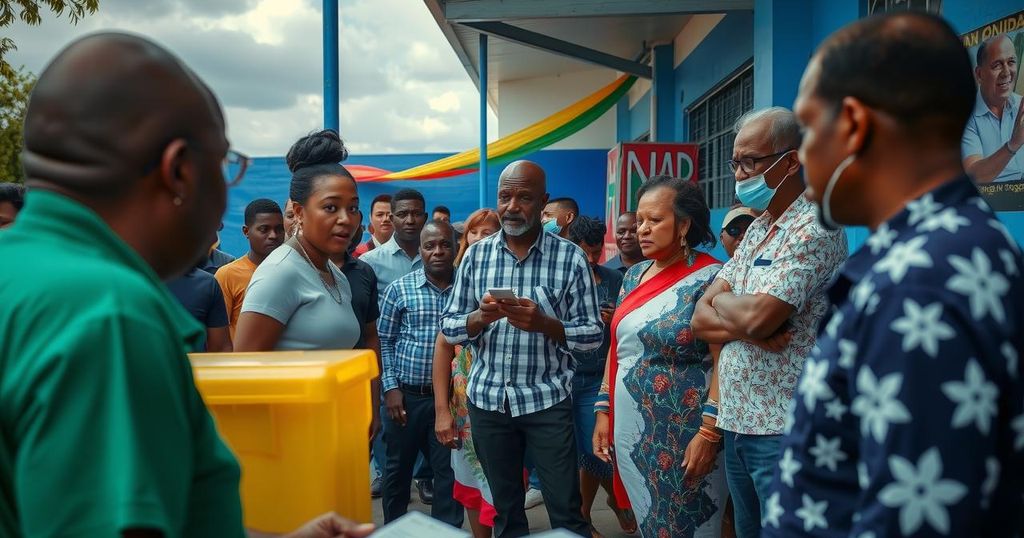World news
AFRICA, AFRICAN UNION, ALLIANCE OF CHANGE, BRITAIN, CHAGOS ISLANDS, DEMOCRACY, DEMONSTRATIONS, GOVERNMENT, INDIAN OCEAN, MAURITIUS, MILITANT SOCIALIST MOVEMENT, NATIONAL ASSEMBLY, NAVIN RAMGOOLAM, OPPOSITION, POLITICS, POPULISM, PR, PRAVIND JUGNAUTH, RAMGOOLAM, SHEILA
Lena Nguyen
0 Comments
Mauritius Parliamentary Elections: A Test for Democracy Amid Scandals
Mauritius voted in parliamentary elections amidst a phone-tapping scandal that prompted a social media ban and raised concerns over civil liberties. Prime Minister Pravind Jugnauth faced challenges from former PM Navin Ramgoolam, with both parties promising economic reforms. Despite allegations of electoral fraud, observers reported a largely smooth process, with 70% voter turnout. The election’s outcome is crucial for the nation’s political future and stability, especially following the recent sovereignty agreement over the Chagos Islands.
Mauritius conducted parliamentary elections amid controversies stemming from a phone-tapping scandal, which has overshadowed the electoral process. The elections, a significant event for one of Africa’s leading democracies, occurred shortly after the recent cession of the Chagos Islands from British sovereignty to Mauritius. Prime Minister Pravind Jugnauth, seeking re-election, faced challenges due to leaked recordings implicating various officials, leading to a ban on social media, which sparked public outrage. The electoral climate pitted Jugnauth’s Militant Socialist Movement against the Alliance of Change, spearheaded by former Prime Minister Navin Ramgoolam, both camps promising poverty reduction and economic improvements. With a turnout exceeding 70%, security measures were reinforced across polling stations. While concerns over electoral integrity were raised, observers deemed the elections largely incident-free. Amidst a backdrop of economic challenges and governance issues, analysts highlighted the need for institutional reforms to combat rising corruption. Notably, the Chagos Islands deal, viewed as a significant step for Mauritius, faces scrutiny amid geopolitical concerns. Attention now turns to the election results and the implications for Mauritius’ political stability and democratic health.
Mauritius is regarded as one of Africa’s most stable democracies, characterized by its vibrant political environment and economic growth. However, recent events, including a historic agreement over the Chagos Islands and a scandal involving leaked phone calls, have raised alarms about potential threats to civil liberties and governance. The political landscape features long-standing leadership from a select few families, with ongoing allegations of corruption and nepotism prompting calls for a change. The elections serve as a critical moment for the nation as it grapples with challenges of political accountability, economic diversification, and stability amidst global geopolitical shifts.
The parliamentary elections in Mauritius highlight the critical issues of governance and stability in the context of a flourishing democracy grappling with scandals and integrity concerns. The outcome will not only determine the political leadership but also reflect the citizens’ desire for transparency and accountability. As the newly elected officials prepare to address pressing economic challenges, the implications of the Chagos Islands agreement will continue to shape the nation’s geopolitical stance and its relationship with global powers, particularly the United States.
Original Source: www.news-expressky.com




Post Comment